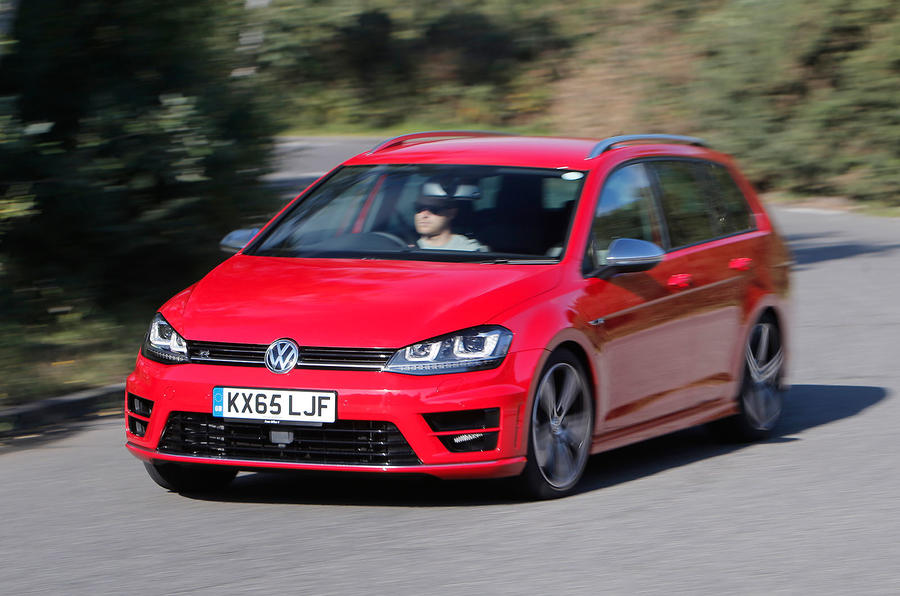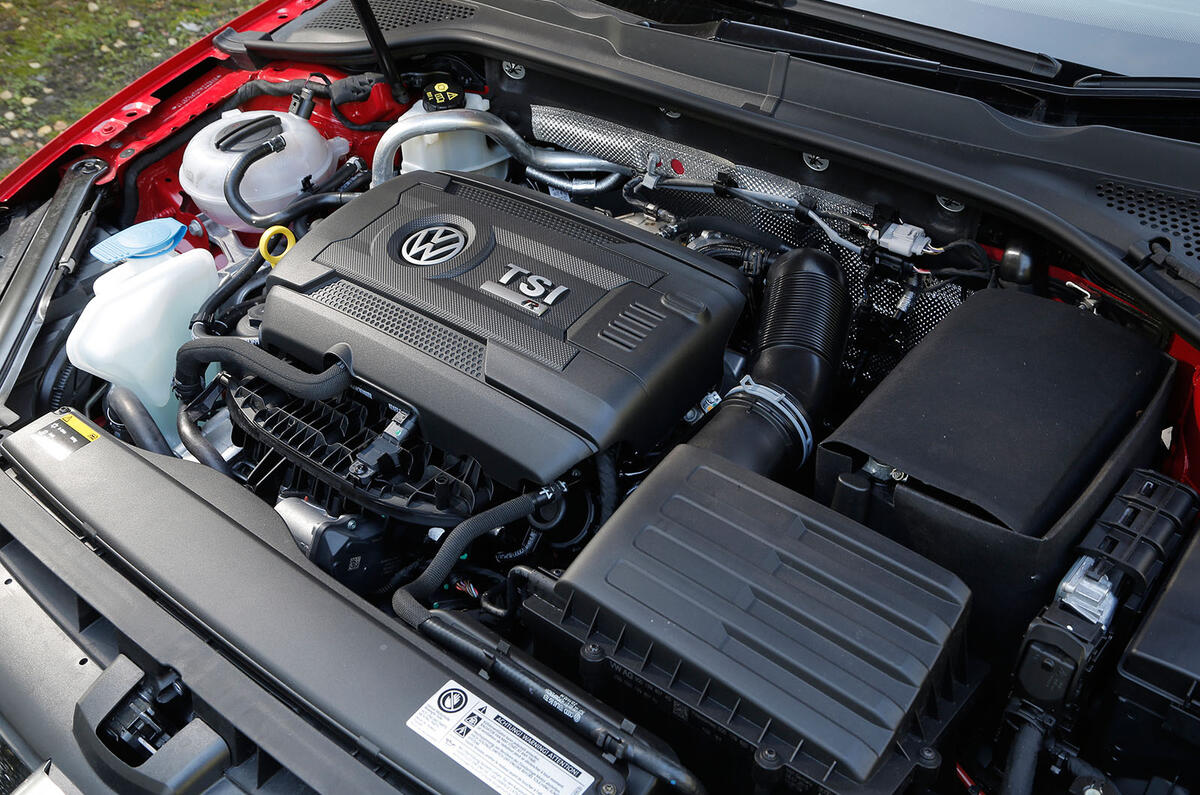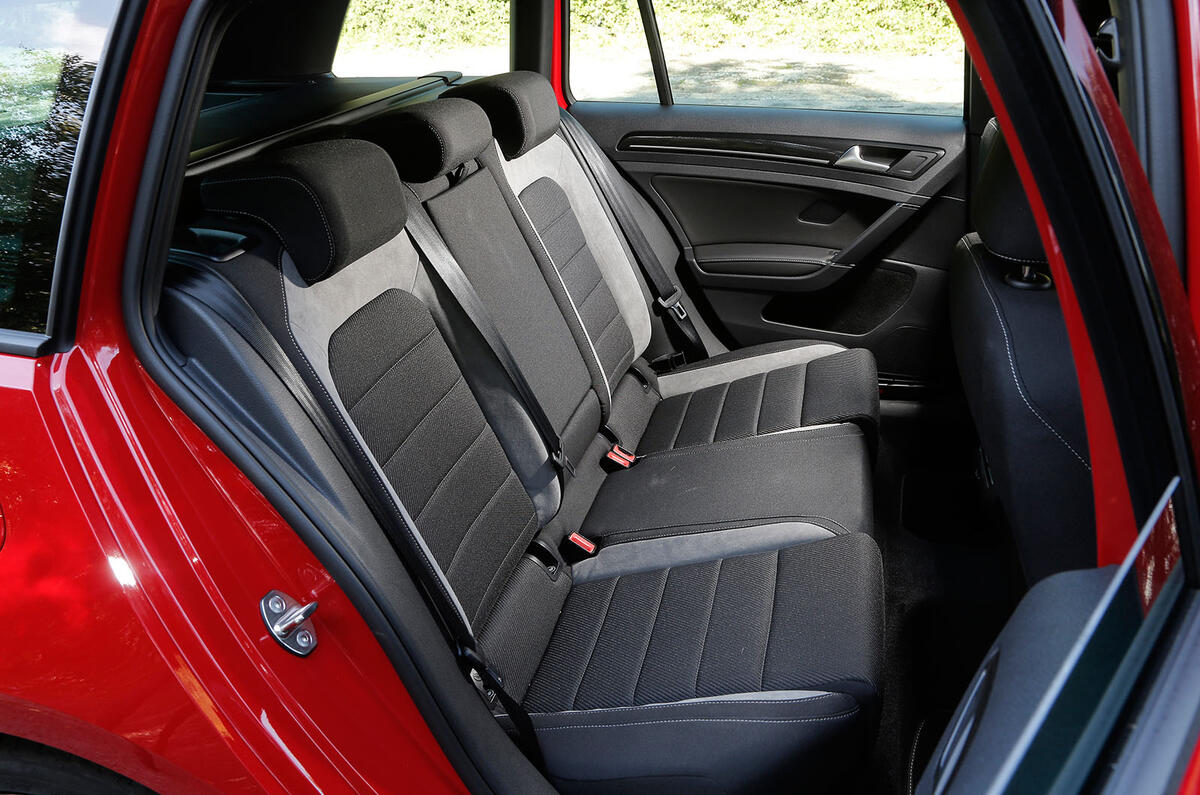Other than the extra length over the Golf R hatch – which allows the estate version to swallow loads of 1.8m in length with the back seats down - and a slightly stiffer rear end, the spec sheet is largely unchanged.
The estate uses the same 2.0-litre turbocharged engine as the hatch, complete with dual-injection (both direct and indirect) plus variable valve timing and lift to help deliver that mighty power along with oodles of torque – all 280lb ft of it, from 1800 to 5500rpm. For a car that does 0-62mph in 5.1sec, the emissions and fuel consumption are relatively decent, too.
Bar a momentary wait for the turbo to energise, it feels brutally quick and sounds terrific. And, according to Volkswagen, this is not petrolhead-muzak piped into the cabin via the stereo; no folks, this is all real.
Select Race mode on the Driver Profile Select button and it opens up butterfly valves to bring the two outer exhausts into play. On top of this, a flap in the bulkhead opens to allow induction roar into the cabin.
This all results in a symphony that has echoes of a Subaru WRX, punctuated by some characterful angry barks of automotive flatulence between gears. If you get everything really hot there’s even a few crackles on the overrun.
Unlike the R hatch, there’s no manual option, and the standard six-speed DSG dual-clutch automatic gearbox has its foibles. Imagine you’re stopped at a red light, next to some chap in a spruced-up Focus who’s clearly eager to see what you’ve got.
Unfortunately, by the time the engine stop-start system has woken up and fired the motor, and the gearbox has finished organising first and engaged a clutch, matey in the Ford will be long gone when the light has gone green.
The gearbox also has a habit of chasing high gears to have the fewest revs possible when you’re pottering along - no doubt to help those emissions. That’s fine, but the minute you want a little splurge of acceleration, it rushes back down the box in a panic and sends the revs stratospheric.
There is a fix, though: stick it in manual and use the paddles. Then it’s excellent, with crisp, millisecond-quick changes. I do wish it stopped changing up for you as you approach the red line though - for me, manual should mean manual.












































Join the debate
Add your comment
I'm inclined to think that
Do remind me, which car is
Do remind me, which car is the current Beetle based on?
@Adrian987
Thanks for feedback, @Will86
Yeah the DSG can be really
DSG stuff